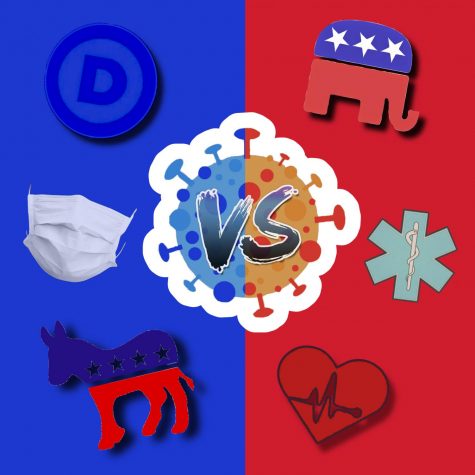Fad Diets: Are They Worth It?
Students Share Their Experience With Fad-Dieting
Photo of measuring tape.
May 22, 2019
Dieting is a prevalent part of American culture. Whether it be what the doctor ordered, wanting to shed a few pounds after a few bad weeks, or your New Year’s resolution 45 million Americans go on some sort of diet each year with the hopes of losing weight. This may not be a bad idea, after all, there are 160 million Americans that are considered either overweight or obese.
“Excessive weight can lead to a number of health problems, including high blood pressure, heart disease, diabetes, arthritis, and sleep disorders. For some people, weight-loss medication or surgery is recommended. For most, though, lifestyle changes — specifically, healthier eating and more physical activity — are considered the best option.” The Washington Post states.
Dieting is not as easy as it looks, not only do you have to adjust to a new lifestyle and stick to it, you also have to make sure you pick the right diet. Many are tempted to choose diets that are glamorized by the media such as keto or Atkins. In a lot of cases, these diets are very restrictive in terms of food and quantity. These diets are quite intense and usually promise unhealthily quick weight loss. The majority of the time these diets are not sustainable and do not grant long term results.
“Fad diets don’t seem to give someone the proper nutrients to live. If I am fatigued or unable to concentrate in school because of my eating, that ruins my quality life. Eventually, you’re going to fall back into whatever you were doing before.” Junior, Faith Nicholas says, “If you do it too long anyway, you could develop an eating disorder also. Further down the line, you’ll have to eat more to recover, so I feel it isn’t really worth it.”
Fad dieting can result in a variety of eating disorders and hinder someone’s quality of life. Nicholas has suffered from symptoms of unhealthy eating patterns and a negative relationship with food due to dieting and an obsession with losing weight.
“I had a toxic mindset so I kind of did it the wrong way. I ended up developing some kind of orthorexia where I got terrified of carbs, after being underweight for a while, my health started to decrease and I began to lose hair.”
Orthorexia is when someone obsessively tries to reach a healthy diet. Nicholas has recovered since then.
“I’m eating more now and I gained twenty pounds.” She states. “The results don’t last forever as you’ll be putting yourself into a constant cycle of losing weight, craving food, and gaining weight.”
These issues can make fad dieting potentially dangerous not only to one’s physical health but also mental health.
“What may begin as a seemingly harmless attempt for losing a few pounds or getting “healthier” can quickly escalate to an all-consuming eating disorder, such as anorexia, bulimia, or binge eating disorder.” Eating Disorder Hope states.
Each disorder comes with different symptoms and causes different obsessive thoughts. Anorexia is when one refuses to eat due to obsessive thoughts about losing weight. Some anorexics wish to become incredibly underweight, such as 70 pounds and believe they will only reach true beauty once they reach that low. Bulimia is an emotional disorder similar to anorexia where the sufferer is obsessed with reaching a certain body image but takes part in binges. To make up for their binges they will fast, cause self-induced vomiting, or working out excessively. Binge-eating disorder is like bulimia except the sufferer does not try to make up for their binging, instead, they go through a cycle of binging and self-hatred.
“Fad dieting when I was in middle school caused two eating disorders.” Sophomore, Ariana Carter explains. Carter suffered from anorexia and bulimia during her middle school career. “During the summer I didn’t eat for two weeks and I dropped ten pounds and it was just really strange and sickening how the lack of nutrients that was killing my body gave me a sense of euphoria.”
These issues also grew into the seventh-grade year and the summer of her eighth-grade year.
“I struggled with bulimia and it was weird because the fact that I was harming my body also gave me euphoria.”
Carter claims that her eating disorders stemmed from her obsession with perfection.
“I had a lot of things going on in my life with my mom and such and I didn’t have control over those areas so I found the one area I could control.”
Nicholas and Carter are only two examples what fad dieting and an unhealthy body image can do to someone. Fad diets are exactly what they sound like. They are fads that do not bring long term, sustainable results and can end up doing more harm than good.
“It’s not sustainable even though you may want to see the results fast it’s just not the way to do it,” Carter says. “You may get the results you want but you will go back to your old ways and the results will be reversed.”








